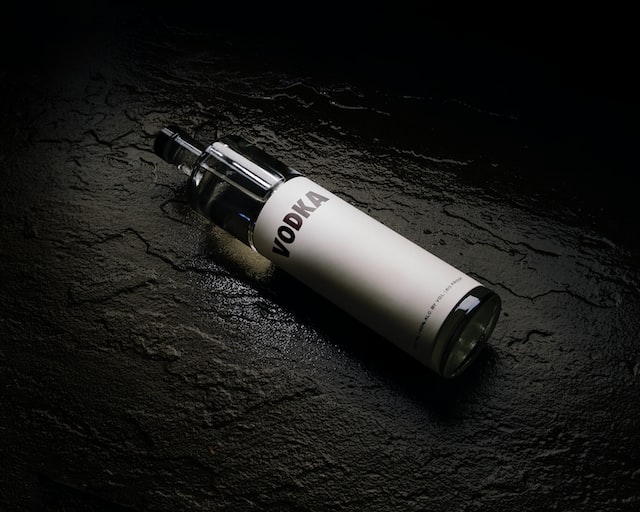
What are the Long Term Effects of Alcohol Abuse?
As most folks know, alcohol is one of America’s most widely available substances. This also means that it is one of America’s most widely consumed substances. With that comes the danger of people abusing it and becoming dependent.
Most of us know at least a little about alcoholism and how that can be a lifelong struggle to get and stay sober, but not everyone knows or understands the effects of alcohol abuse. Unfortunately for those that abuse alcohol, it has both long and short-term side effects and depending on how long you’ve been abusing alcohol and how much you drink regularly, these effects can be quite severe.
Table of Contents:
What is alcohol abuse?
Alcohol abuse can mean different things to different people. Still, there are some generally accepted guidelines for when a person is abusing alcohol and when they are just having a drink. The National Institute of Health (NIH) defines drinking in moderation as having two drinks per day for males and one drink per day for females. This is based on weight, body chemistry, and the body’s ability to absorb alcohol.
Conversely, a couple of different categories relate to alcohol abuse or alcohol use disorder, the clinical term for alcohol abuse or alcohol addiction.
Binge drinking
Binge drinking is a type of alcohol abuse where a person has multiple drinks in one setting, often drinking to the point of blacking out or other negative consequences. These episodes are typically infrequent, which causes many to believe that this is not alcohol abuse or that a person doesn’t have a drinking problem because they only drink excessively occasionally.
However, a broad definition of addiction defines it as repeating a set behavior regardless of negative consequences to oneself and others. So if a person binge drinks, faces negative consequences, and ultimately decides to binge drink again on another date, that is defined as alcohol abuse.
Heavy drinking
The second and more recognizable category of alcohol abuse is heavy drinking or consuming more than 1 or 2 drinks per day daily. This is different from binge drinking in that a person does not necessarily consume as much alcohol at one time, but they choose to drink more than a couple of drinks every day.
This is what most people define as a person with a drinking problem. People who drink every day often feel a compulsive need to consume the alcohol, and over time their tolerance for alcohol increases, causing them to need to consume more to feel “normal,” which can lead to severe long-term effects.
What is alcohol addiction?
Alcohol addiction is defined as a chronic relapsing condition where a person loses control over their ability to moderate their intake of alcohol. Other sources also refer to addiction as a disease because it can persist throughout a person’s life.
Addiction is heavily characterized by the fact that a person will continue using a substance despite any negative consequences. There are specific reasons why a person becomes addicted, however. It is important to note that there is no rule for how long it takes before a person is addicted. It can take one drink for a person to become addicted. In contrast, another person can drink in moderation for years before having an episode of binge drinking or starting to drink heavily.
Why is alcohol addictive?
While most of us understand alcohol addiction to a degree, the reason why alcohol is so addictive is still a bit confusing.
There are two primary reasons why alcohol is so addictive. In most cases, they both play a role in a person becoming addicted and staying addicted.
Firstly, many people enjoy the effect that alcohol has on their bodies. As a depressant, alcohol slows down the central nervous system and produces a relaxing effect. This reduces reflexes and response times but also lowers inhibitions and produces a feeling of being more carefree. For this reason, alcohol is sometimes called “the social lubricant” as people, when they drink, are inclined to do things or say things they otherwise might not.
The second reason people become addicted to alcohol is that, like most other drugs, it changes the body’s chemical makeup. Over time, alcohol acts on the central nervous system and the brain and changes how they work. This causes the body to need alcohol to function in a normal manner. This is known as alcohol dependence. Once a person becomes dependent on alcohol to perform day-to-day tasks, the next step is full-blown addiction.
How does someone get help for addiction?
Many people try to quit drinking on their own but fail to succeed. This is what is known as relapsing. Some even relapse multiple times before getting the help they need to beat addiction and stay sober.
As we’ve discussed, addiction stays with a person their entire lives, so without developing the tools to cope with life without alcohol, it is difficult to break the cycle of addiction.
Getting help with addiction always starts with admitting you have a problem and need support. From there, the best course of action is to go to a licensed treatment facility where you can be professionally monitored and put through a treatment program to address your specific addiction.
That’s one important thing to understand; every addiction is unique. What works for one person to get sober may not work for another.
A professional treatment facility can help a person detox. This means the removal of the alcohol from a person’s system, which often carries complications from withdrawal, and beginning a treatment plan that focuses on figuring out why a person drinks and how to deal with the consequences of their addiction while moving forward as a sober person and learning how to stay sober.
In-Home Alcohol Addiction Recovery with Elite Home Detox
Elite Home Detox brings the services of a traditional rehabilitation clinic to the comfort of a patient’s home. Since every patient’s circumstances and needs are different, our comprehensive treatment plan is tailored to the individual.
In-home alcohol addiction recovery is a modern solution for the busy, fast-paced lifestyles of today.
Personalized attention
Unlike a traditional addiction rehabilitation clinic, where patients meet in groups, in-home rehab means that our patients get dedicated, one-on-one attention.
Elite Home Detox provides a 24/7 onsite medical professional to monitor the patient, make changes to the treatment plan as necessary, and answer any questions that the patient, friends, or family may have. We are with our patients every step of the way to ensure a safe and healthy recovery with long-lasting results.
Convenient and private
Both inpatient and outpatient clinics require patients to travel to their destination. This is not only costly, but it also requires a significant amount of the patient’s time. In-home addiction rehabilitation works with the patient’s schedule, minimizing disruptions while maximizing results.
Some people may find group therapy beneficial. However, since addiction recovery is an intense and involved process, many patients prefer discretion while rehabilitating. That’s why Elite Home Detox brings our services directly to our patients for unmatched convenience and privacy.
Comprehensive, quality care
From genetics to social environment, many factors can contribute to a person developing an addiction to alcohol. These same factors need to be addressed during alcohol addiction rehab for a successful and lasting recovery. From detox to counseling that helps patients develop healthy coping mechanisms, Elite Home Detox offers the same services and quality of care as traditional rehab clinics.
Our team is thoroughly trained in addiction recovery, and every program is overseen by our medical director to ensure quality care.



 Erika Kamish is a nationally board-certified physician assistant licensed by the California Physician Assistant Committee. With over 6 years of experience in addiction medicine and primary care, she reviews Elite Home Detox content for medical accuracy and patient-centered care.
Erika Kamish is a nationally board-certified physician assistant licensed by the California Physician Assistant Committee. With over 6 years of experience in addiction medicine and primary care, she reviews Elite Home Detox content for medical accuracy and patient-centered care.